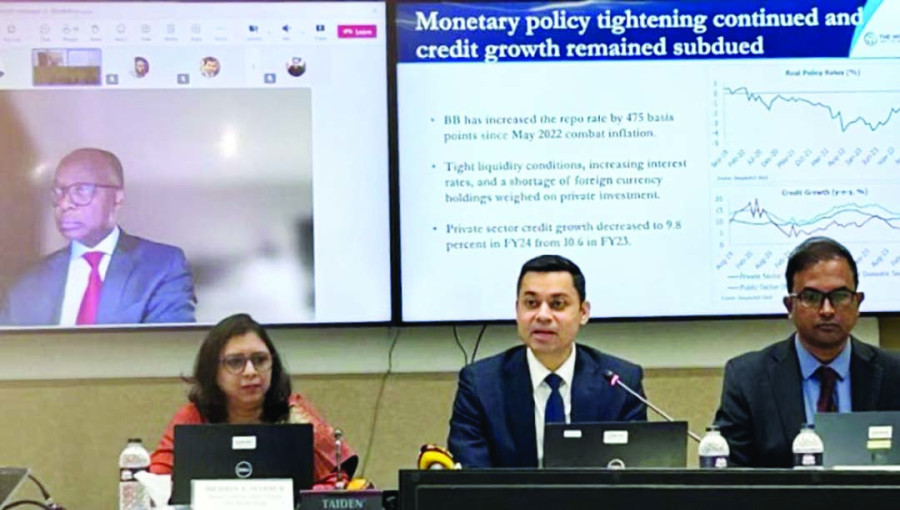Dhaka, Oct 15 (V7N): Bangladesh's inflation is expected to decrease by the end of FY2024-25 but will remain elevated, according to the World Bank (WB). In its October Bangladesh Development Update released today, the WB forecasts that inflation will drop to 9 percent in FY25 from 9.7 percent in FY24. However, economic growth is anticipated to be restricted to just 4 percent, mainly due to persistent political protests and the ongoing government transition.
The country is gradually recovering from unrest and political instability, which heavily impacted economic activity in the first quarter of FY25. The WB identified political uncertainty, weak law enforcement, and labor unrest in industrial areas as significant obstacles to achieving full economic recovery.
Despite the easing of inflationary pressures, high food and import prices—aggravated by supply chain disruptions—are expected to keep inflation at elevated levels. Rising food costs, particularly for vegetables, have led to public frustration as inflation averaged 9.7 percent in FY24, up from 9 percent in FY23.
In contrast, the Asian Development Bank (ADB) recently projected that inflation could rise further, reaching 10.1 percent in FY25 due to ongoing supply challenges and currency depreciation.
The WB noted that while Bangladesh Bank has tightened monetary policy to control inflation, its impact has been limited due to ongoing increases in food and energy prices, as well as the depreciation of the taka. Even though the central bank removed a lending rate cap in May 2024, inflationary pressures have persisted. The WB highlighted the importance of effective monetary and fiscal policies to manage inflation in the future.
The WB also expressed concern about vulnerabilities in the financial sector, particularly the high level of Non-Performing Loans (NPLs), which are putting strain on the banking system. The sector is dealing with liquidity shortages, and private sector credit growth has slowed in FY24. The WB emphasized the need for stronger regulatory enforcement to address these financial sector issues.
END/MSS/RH































Comment: